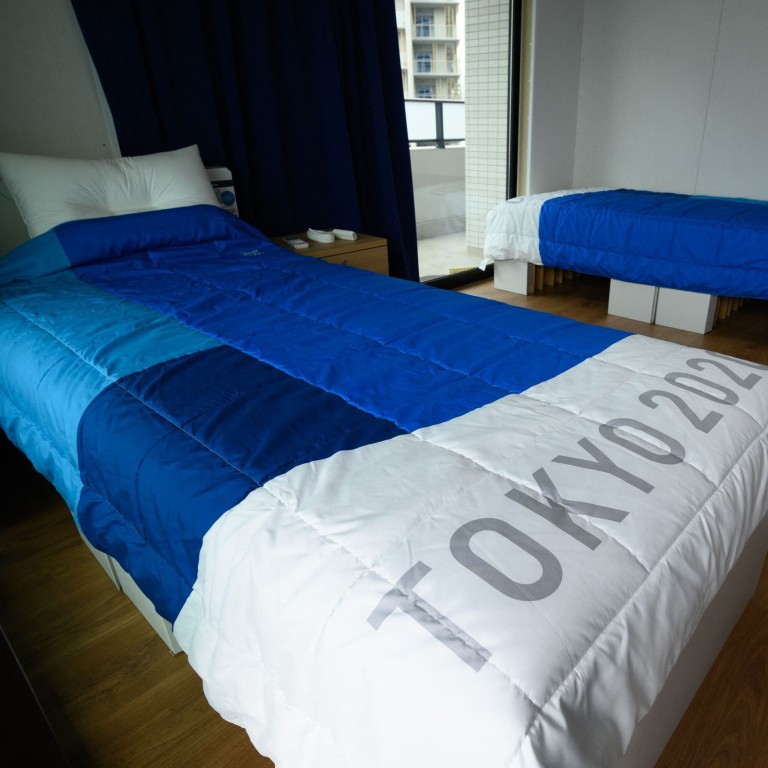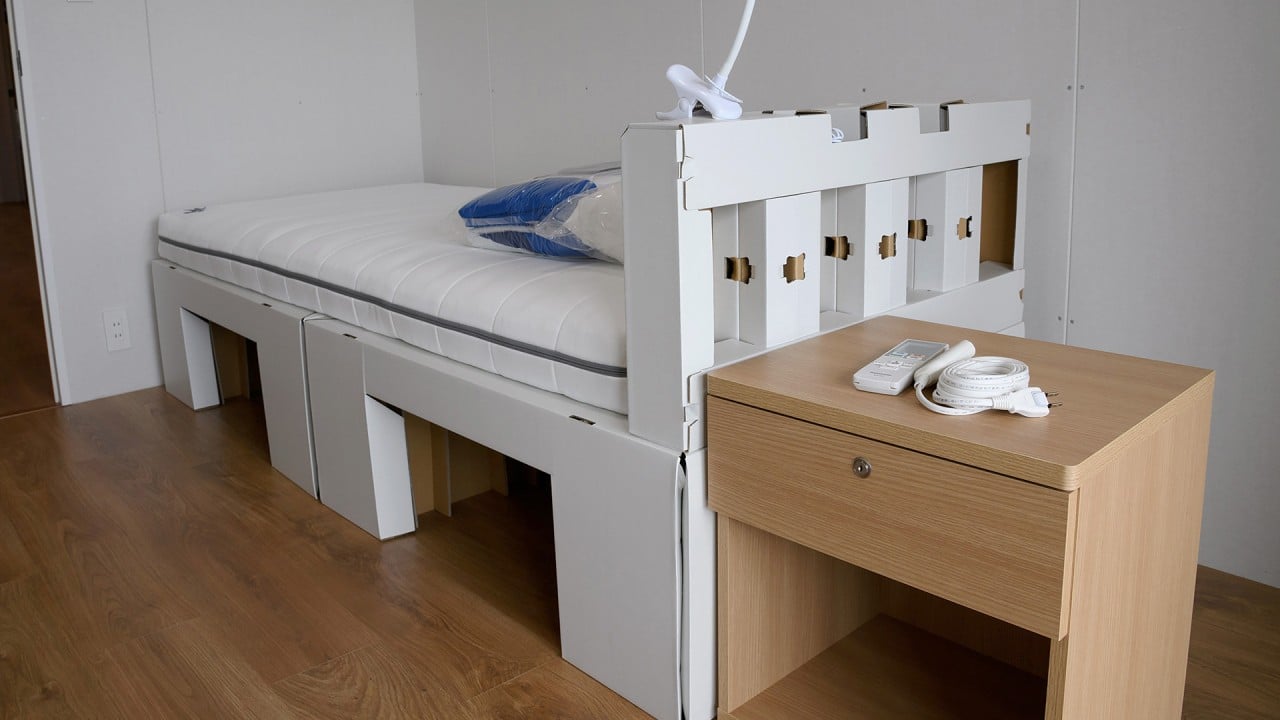
Tokyo 2020: ‘Anti-sex’ bed rumours fly at Olympic Games but organisers say it can withstand 200kg weight and is part of sustainability efforts
- Social media ablaze as photos of beds at Olympic Village make the rounds and bring forth accusations of deterring sex
- Olympic Village, which can house up to 18,000 athletes, has had a number of precautions installed with goal of helping battle any Covid-19 outbreak
The organisers have said the cardboard beds are in line with their sustainability efforts but that has not stopped speculation that they are “anti-sex” beds meant to prevent sleepovers, innocent or intimate, amid the coronavirus pandemic.
Fears of the virus spreading at the Games, especially at the already heavily restricted athletes’ village, have mounted over the past few days with three athletes testing positive for the infection while six competitors and two staffers from Great Britain’s team were self-isolating after being identified as close contacts with a case.

01:28
‘Anti-sex’ or sustainable: Tokyo Olympic Village cardboard beds spark speculation
Speculation of the bed’s “anti-sex” design first came from American athlete Paul Chelimo, a silver medallist in 5000 metres at the 2016 Rio Olympics, as athletes began pouring into Japan in recent weeks and found out how they would be spending their nights during the Games.
“This is aimed at avoiding intimacy among athletes. Beds will be able to withstand the weight of a single person to avoid situations beyond sports,” he tweeted. “I see no problem for distance runners, even 4 of us can do …”
Fury over unmasked Japanese fans greeting Chinese table tennis team
The track and field athlete joked that he would be sleeping on the floor, and would sell his bed to NBA superstar Kevin Durant or one of the other basketball players if their beds collapsed.
“Just flip the wardrobe horizontally and put the mattress on top. The wardrobe looks like it’s made of wood,” a netizen replied to Chelimo on Twitter.
But there appears to be a more practical reason the beds were made of cardboard: they are part of the Games’ sustainability plan. The bed frames are made from recyclable cardboard, with mattresses formed of polythene which will be recycled into plastic products after the Olympics.
Beds’ manufacturer Airweave is confident that the 2.1-metre long bed can bear a weight of around 200 kilograms, which is more than any weight of the athletes who took part in Rio.
“They are stronger than wooden beds,” Takashi Kitajima, the general manager of the athletes’ village said, when introducing the design in January.
Irish gymnast Rhys McClenaghan, who is now in the village, tweeted a video with a little test to dispel the myth of the “anti-sex” design.
“They’re made of cardboard, yes. But apparently, they aren’t meant to break at any sudden movements,” the 21 year-old said while hopping up and down on his own bed.
“It’s fake, fake news!” he concluded.
Condoms have always been distributed to athletes at the Games since the 1988 Seoul Olympics to raise awareness of HIV and Aids.
Tokyo Olympic organisers will still deliver about 150,000 condoms, but as part of the coronavirus preventive measures, participants will not be given supplies during their stay at the village but will instead receive them as souvenirs upon their departure.
“We go to Tokyo to compete in the Olympics and won’t think too much beyond our competitions. We only need the bed to sleep and the rest is not our concern,” a Hong Kong athlete who is now in Tokyo told the Post.
Failure to comply may result in fines, disqualification, medal stripping and deportation.
The village, which can house 18,000 athletes and team members, has taken a series of antivirus measures to ensure the Games will be safe. For example, athletes will be tested daily and required to wear masks except during competition, eating and sleeping. And there will be no partying, officials warned.

